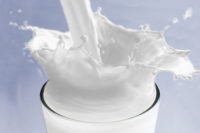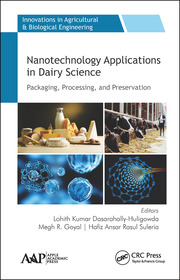Science is progressing on probiotics and health

Mt. Capra, a processor in Chehalis, Wash., uses a probiotic culture in its Yo-Quick make-at-home goat’s-milk yogurt.
You know the saying: “Technology is great — when it works.” It’s been working quite well to advance the field of probiotics and health. New methods to study intestinal microbiota and recent research on probiotics’ health effects are impressive. It’s exciting to consider what these findings may signify for the health of humans and the dairy industry.
Probiotics are live micro-organisms, which when administered in adequate amounts, confer a health benefit on the host. Many probiotics live and work in the gastrointestinal tract, so studying them in action is inherently invasive.
But savvy researchers have found solutions. The UK Institute of Food Research created a computer-controlled, mechanical simulator of gastric digestion. TNO Research developed a technology that grows mini gut structures from pig intestinal stem cells. Such technologies can be used as a first step to test food components like probiotics before employing the more time-consuming and expensive human studies.
Recently, NIZO Food Research and Medimetrics developed an orally administrated micro-electronic capsule technology that obtains samples from a human’s small intestine in order to analyze the gut microbiome.
“Essentially, this technology helps shine light on the black box that is the distal small intestine and proximal bowel,” said Mary Ellen Sanders, probiotic microbiology consultant, Dairy & Food Culture Technologies, Centennial, Colo. “If it works, it should be very useful.”
Getting probiotics to the gut
What probiotics do for health once they reach the gut is an ongoing subject of study. To date, there are no Food and Drug Administration-authorized health claims for probiotics in the United States, although structure-function claims such as “helps support digestive health” can be used if they are adequately supported by sound science, are truthful and are not misleading.
The expert report, “The World Gastroenterology Organisation Global Guidelines: Probiotics and Prebiotics,” concluded that, “In general, the strongest clinical evidence for probiotics is related to their use in improving gut health and stimulating immune function.” For particular probiotic strains (or particular mixtures of strains) in specific quantities, the report noted that there is “strong” or “good” evidence for:
- Reducing the severity and duration of acute infectious diarrhea in children.
- Ameliorating antibiotic-associated diarrhea in adults and children.
- Preventing an initial attack of pouchitis, and preventing further relapse of pouchitis after inducing remission with antibiotics.
- Improving lactose digestion and reducing symptoms related to lactose intolerance.
- Reducing death and disease from necrotizing enterocolitis in pre-term infants.
Specific to dairy applications, there is good clinical data to support some positive health effects of Lactobacillus and Bifidobacterium delivered via yogurt, Sanders noted.
Hardier probiotic strains can withstand the processing and storage conditions necessary to be used in a wide variety of functional foods. One is GanedenBC30 (the trademark name for Bacillus coagulans GBI-30, 6086), a spore-forming bacteria that is forced into its dormant state through processing. After ingestion, it begins to germinate and proliferate. GanedenBC30 is not new, but it recently received GRAS status (generally recognized as safe).
GanedenBC30 survives baking, freezing, boiling, extrusion and doesn’t require refrigeration. In dairy processing, it can be added before HT/ST pasteurization. It is used worldwide in 80 products, including fluid milk, yogurt, cheese, frozen yogurts, frozen dairy desserts, orange juice, coffee and tea.
Mike Bush, vice president of Ganeden Biotech Inc., Cleveland, said he believes Greek yogurt is a great opportunity for GanedenBC30 because the probiotic improves the utilization of protein and doesn’t affect flavor.
“Our opinion is that it’s the ideal organism for a daily-consumption, lifestyle product,” Bush said. “There’s good clinical data supporting GanedenB30’s immune and anti-inflammatory benefits.”
Dairy processors driving innovation
It is, in fact, the dairy industry that’s driving the majority of innovations in probiotic-containing foods and beverages. According to the market research firm Mintel, dairy products continue to lead the pack for the number of probiotic food and drink products launched worldwide, with the vast majority of launches being spoonable yogurt and drinkable yogurt/cultured milk.
Dairy foods have the advantage of being the perfect host for probiotics because they provide a very suitable living environment:
- Dairy foods’ buffering properties offer protection to probiotics as they travel through the acidic environment in the stomach and encounter digestive enzymes and bile acids in the small intestine.
- For heat-sensitive probiotics, the cold storage of dairy foods generally promotes stability.
- Dairy’s nutrients and bioactive components may nourish, protect or enhance the functioning of probiotics.
The dairy/probiotic pairing is comfortable for consumers, too. Consumers are used to “good bacteria” residing in yogurt; therefore, they welcome the addition of probiotics.
Chr Hansen Inc., Milwaukee, will soon debut a probiotic blend (called nu-trish Pro-K) made with Lactococcus lactis ssp. cremoris that produces vitamin K2.
“It’s very new and different. While other probiotics work in the gut, this strain makes vitamin K2 while growing in milk,” explained Mirjana Curic-Bawden, senior scientist with Chr Hansen. “K2 is important — it invites calcium into bones — but it’s often missing from our [“healthy”] diets because it’s found in yellow fat such as animal fat, butter and some cheeses like Gouda and Brie.” Nu-trish Pro-K should be available by the end of this year.
What are the most promising areas of probiotic R&D for the dairy industry? Sanders sees potential for probiotics’ positive impact on anxiety, metabolic syndrome and heart health. Case in point: Research published in the British Journal of Nutrition and the European Journal of Clinical Nutrition in 2012 found that consuming yogurt containing Lactobacillus reuteri NCIMB 30142 may reduce serum cholesterol.
“They’re the first well-controlled human studies to show this effect,” said Sanders, “and the first time that I’ve been convinced.”
Karen Giles-Smith, a registered dietitian in Michigan, is Dairy Foods’ health and wellness editor. She blogs at www.thewellnesswriter.com/blog.
Looking for a reprint of this article?
From high-res PDFs to custom plaques, order your copy today!









